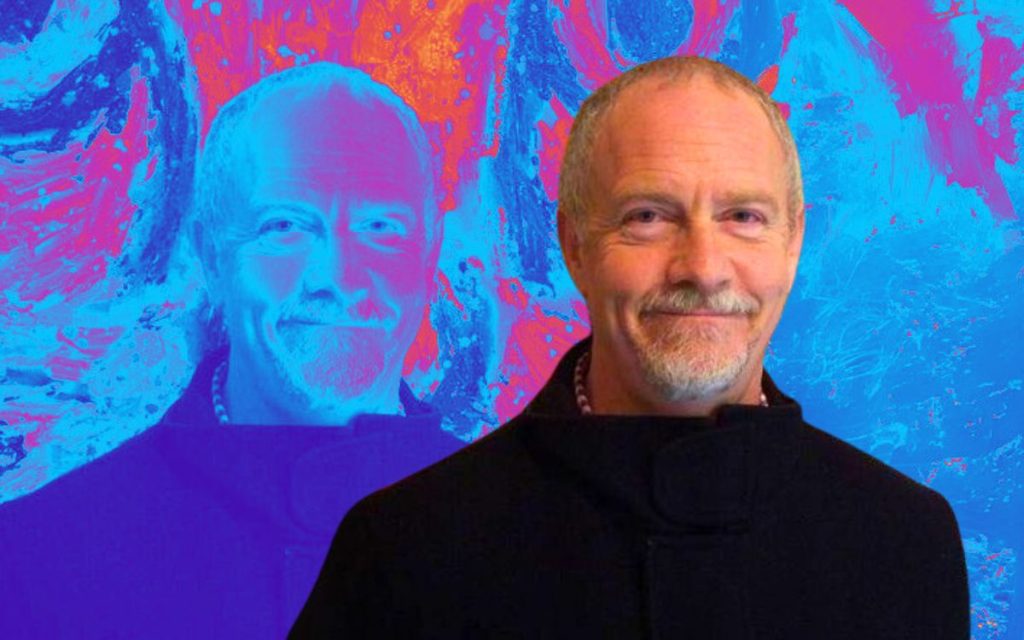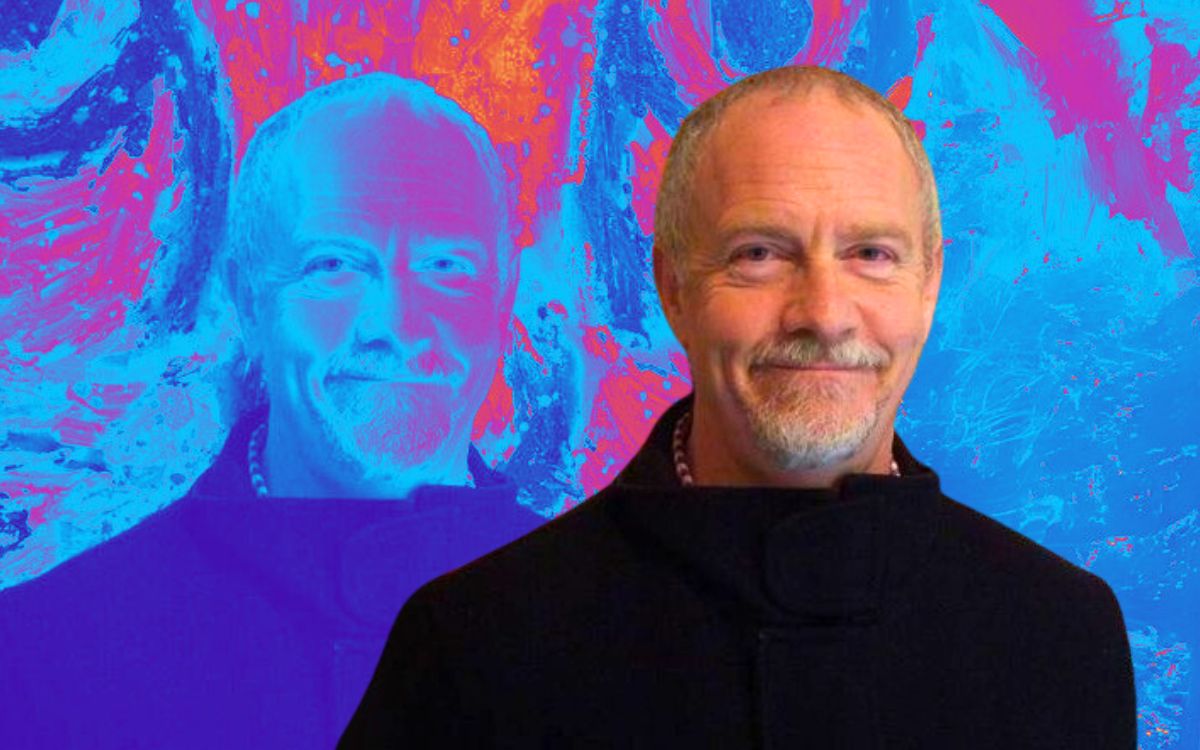Veteran UFO investigator Neil Nixon explains why, despite decades of sightings and speculation, we still don’t know the full truth about UFOs
Neil Nixon is a UFO expert and paranormal investigator with over 40 years’ experience in researching the uncanny. He talks to Spooky Isles about some of the cases he has studied and his general thoughts on UFOs.
DAVID SAUNDERSON: When you say you “believe in UFOs”, what do you mean? Do you mean alien craft, strange natural things in the sky, or just anything we can’t identify?
NEIL NIXON: The last two, wholeheartedly. They’re unquestionably real. They’re proven by peer-reviewed work and the sources of some UFO reports – like those from astronomers – mean we’re clearly dealing with things both strange and natural.
The first one is harder to believe in and to me very doubtful. If we have encountered alien spacecraft, the evidence as far as I’m concerned is much more likely to be in a handful of enigmatic reports supported by a few people acquainted with the strangest things investigated by astronomers.
So, such craft might be deep space probes, not intelligently crewed vehicles intended to land on Earth. Reports like the tracking of the Oumuamua object in 2017 are, however, more likely to teach us about the nature of rare and random objects naturally occurring in space.
For the classic flying saucers and glowing orbs, what do you think are the three most likely ordinary explanations?
First off, it matters less what any individual thinks and more what we can prove and investigate.
So I’m mindful of the fact that orbs have been proven to coincide with – for example – rocket launches (meaning they could be exhaust gases in the upper atmosphere). I’ve also seen evidence of a “UFO” local to me that’s clearly a modified drone and the modifications and when and where it’s flown appear to be intended to generate UFO reports.
Some photographs of orbs are clearly dust, moisture, or other small things close to camera lenses and out of focus.

If you could set up one new test at a place with lots of UFO reports, what would you measure first?
That would have to be determined by where the test was and what was happening there, and you’d be obliged to go somewhere reliable for reports.
The only ufologists I’ve known who went to their investigations confident of sightings were the crew at Project Hessdalen who investigated airborne lights in a Norwegian valley over 40 years ago. They used the best technology at the time (video recordings, radar, even firing a laser at a light).
In an ideal situation those lights would kick off again, I’d join them, and we’d have AI, live links to meteorologists and much better equipment to monitor air quality than they had.
Can you name a British UFO case that deserves more attention, and explain why?
The Bob Taylor encounter (aka Dechmont Woods case). I think it’s amongst the very best cases, firstly because it’s unsolved and Malcolm Robinson’s book on the case outlines 16 possible explanations, making it a useful yardstick for many more cases than this one.
At the heart of it there’s a bemused and sincere witness and tantalising forensic evidence. The police met the witnesses soon after the event. In the absence of any more suitable approach they treated it as an assault, and the most unusual aspect of the case is that they determined that whatever forces caused the tears in Taylor’s trousers, they were likely pulling him upward.
You often talk about “high-strangeness” cases. What makes a weird case worth serious study to you?
The quality of the evidence, which may start with a witness who is clearly deeply affected.
When that is added to physical evidence, it’s a potent statement that something happened. Bob Taylor experienced a consciousness-altering event and there were physical traces.
Even if it was down to mundane things colliding (like maybe spores from nearby vegetation causing a hallucinogenic experience that conjured up images linked to his WW2 service at sea), it’s still valuable evidence of what can happen and how we can create our own experiences. If it was more than that, it’s even more special in a sea of predictable claims.
What kind of proof would convince you that a UFO was definitely not from Earth?
Anything that withstood peer review would be a great start.
Serious point here, individuals like me are less important than what comes about when talents – especially those who are sceptical about UFO claims – combine to investigate and stand up an argument.
For as long as we focus on individual opinions and specific cases precious to those individuals, then ufology deserves a lot of the scorn it attracts.
You’ve told stories about being fooled by your own expectations. What do you do now to stop yourself making that mistake again?
Learn from those experiences, but otherwise nothing.
Realising mistakes and building on them is the way the best endeavours move forward. I’m sure some of my best hunches about paranormal mysteries in general are wrong, I just don’t know which hunches those are.
I’m an outlier where the Rendlesham Forest case is concerned, for example. But I’ve made it my business to find out what everyone else believes, and I’ve also visited the site a few times, so I’m open to something turning up that proves me wrong – and if that gets us closer to the truth, great.
How do you balance being kind to people who’ve had strange experiences while still being clear about the facts?
Well, firstly, you listen and take them seriously.
If you add up all the bookings I get for live talks on the range of paranormal topics I present on, then that’s the busiest part of my live work. Therefore, I’m guaranteed to meet people who want to come forward after a talk and tell me the strangest experiences they’ve had.
You start by listening. I wouldn’t openly suggest a specific explanation unless I was confident about it being the likely answer. I once heard a cracking story that involved a couple being spooked by a bright light as they were – ahem – in a state of extreme engagement in undergrowth!
Given when and where this happened, and some reports around the same time about the MoD testing a piece of battlefield kit that was so useless it never went into service, I felt confident suggesting this to the lady who reported it. But those circumstances are unusual.
Regardless of any opinions I have, I often put people in touch with others who share their experiences. For example, I once met someone whose third sentence to me in a conversation was recall of an alien abduction – I didn’t even know her name at this point! I ended up guiding her towards a support group for abductees.
What’s the best argument against UFOs that believers ignore? And the best bit of UFO evidence that sceptics ignore?
For the first part, the steady stream of incredible cases that were going to prove ET contact to everyone that turned out to be hoaxes, military cover-ups and the like.
So, for example, MJ-12, Roswell, the Botswana sky crash, Gulf Breeze, and the convoluted story covered in the Mirage Men documentary and book. The popular content in whatever media either ignores the proof the cases aren’t what many claim (as with Roswell), or just bypasses this part of ufological history.
For the second part, there’s such resistance to ET-related claims amongst many sceptically-minded people that they rule out anything they perceive as being related to that area of research.
So, for example, I’ve seen some disparaging comments on Avi Loeb’s work collecting interstellar meteorites. His thinking seems sound to me. Specifically, he’s aiming to use tracking of the occasional meteorites that arrive from outside the solar system and, where possible, retrieve them.
It’s a costly and labour-intensive exercise, but his thinking is sound. If any of those fragments yielded evidence of isotopes unknown to us, or betrayed evidence of being manufactured, then our knowledge of the cosmos is changed in that single discovery.
There isn’t any specific evidence yet, and there might never be. But what I’m thinking here is that the tonnage of intriguing evidence coming from astronomy often gets lumped in with lurid UFO claims by sceptics, and to me, there’s a qualitative difference between the way the best minds are approaching the astronomical stuff and the way the popular media approach UFO claims.
If it turned out that all alien encounters were really dreams or tricks of the mind, would UFO stories still matter? Why?
Of course they’d matter.
In fact, ufology is already feeding social science with loads of useful information. I quoted UFO People by M.J. Banias in something I wrote recently. Studying the whole community, he notes at one point: “True expertise in this subculture is becoming comfortable with the fundamental principle that no one knows a damn thing; if they say they do, they are lying.”
That investigation was published in 2019, so ufology and the paranormal community in general are very fertile ground for people observing the extreme behaviours of other people, and those investigations withstand peer review and build on solid evidence.
You’ve said tiredness and imagination can play a part in strange experiences. How do you explain that without sounding like you’re mocking people?
In the end there are people who want to believe they had a genuine encounter with a paranormal entity, so sometimes you either don’t explain it, or you agree to differ.
But I’m not mocking anyone. I’m happy to admit to live audiences that where I’m at now is realising that where my strongest interests lie – with UFOs – I don’t think we know very much, and I don’t think we know how to frame some of the most important questions.
So, presuming that anyone’s an expert is likely to be counterproductive if we want to become confident in our knowledge.
Specific to tiredness and imagination and their potential effects, one thing you can do is point out where other people have had similar experiences regarding physical effects but different experiences with regard to meeting entities.
Sleep paralysis, for example, could produce alien encounters today. Mythic demons appeared centuries ago, but people in both instances experienced being held down, paralysed, etc.
Do you think there are times when a case should not be made public? What duty do researchers have to witnesses afterwards?
Yes, but – seriously – it matters less what an individual thinks than where the evidence takes us.
Some people have accidentally encountered secret military projects and experienced things that could have been useful to enemies of the people developing that technology. There may be good reasons to mislead them, swear them to secrecy, etc.
In the end, you might be safeguarding the accidental witnesses. Granted, that’s not always what’s going on.
I once knew someone who had regular encounters with airborne lights that were trying to give her a message. In my own highly unofficial investigation near the location where this was happening I looked where she was looking and clearly saw scheduled planes approaching an airport.
This was years before apps on your phone that tell you where every plane in sight is heading. But I think it is significant that cases like the one I’m describing seem to have declined massively since those apps arrived.
I chose to shut up on that for two reasons. Firstly, we shared a load of acquaintances, most of whom were very pro-ET and they’d likely have turned on me!
Secondly, the person I knew had kids and a career, neither of whom would have benefited if I were proven right.
On TV, UFOs and the paranormal are often dramatised. What do programmes usually get wrong, and what do they sometimes get right?
Wrong, they overemphasise the extent to which this whole set of phenomena revolve around apparently sentient beings (humans and aliens).
They also often produce aliens that rely either on what costumes are available for human actors, or what level of scary appearance gets the best response from test audiences.
Right, that at heart a lot of the most compelling mysteries are about how humans are impacted and the stories are genuinely dramatic.
Is there a famous case you once believed but later changed your mind about? What made you change?
In the late 80s and early 90s, the failures of big claims like the Botswana sky crash – perhaps better known these days as the Kalahari UAP incident – seemed like a minor distraction in an era when one of the biggies, like Roswell, was genuinely expected to be proven right as having some genuine evidence of ET involvement.
Long story short, but starting with Kal Korff’s book in 1997 and culminating in Karl Pflock’s investigation that was published a few years later, that case is clearly explained by Project Mogul and a human pile-on for various reasons.
It wasn’t just my mind that was changed. Reading Pflock’s book had a physical impact on me because you can’t refute the quality of his investigation.
And once you get past the cause of the original incident, you’ve still got to deal with the fact the whole case is crawling with hoaxed claims, people on the make and an audience willing to suspend their belief because they want the whole thing to be the way it was claimed to be at the start.
I once compared it to the movie Chinatown, which – I think – is a good analogy. Chinatown looks like your standard gangster movie at the outset but doesn’t feel right and – spoiler alert – once you realise all the cops are corrupt, you’ve got it.
Karl Pflock’s investigation was funded by the Fund for UFO Research. They sent him off confident he’d bring back something that would shut the sceptics up and gave him the resources required to do that. So his demolition of the whole case is stronger because he reached the only reasonable conclusion, which wasn’t what he or his bosses on that job wanted.
If a curious teenager wanted to learn about UFOs properly, what one book should they read, what one habit should they build, and what one trap should they avoid?
You’re asking the wrong person. The whole point of me writing UFOs, Aliens and the Battle for the Truth was to produce that kind of book.
In a spirit of even-handedness, I’d also suggest the recent BBC documentary What are UFOs? is a good start. It’s more sceptical than I think most teenagers would want, but it’s useful to have those ideas embedded before you subject yourself to people offering up the most incredible claims. And that documentary was released this year, so it’s up to date.
I might have covered the habit and trap above. Habit: be critical and test what you think you know against the best evidence that you’re wrong.
Unlikely to make you popular but better in the long run for your sanity, and the transferrable skills you’ll develop will be more useful.
Trap to avoid: don’t believe something simply because the place you found it (book, YouTube video, etc.) is popular.
Have you experienced a UFO sighting or something truly strange? Share your story with us in the comments below!
- Find out more about Neil Nixon: http://www.neilnixon.com
- You can find out more about Neil Nixon’s talks: https://speakernet.co.uk/speaker/1179/neil-nixon
- Neil’s books are available here: https://amzn.to/3OPQGwQ


